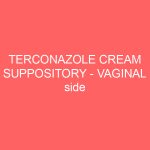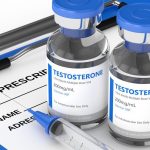Contents
What Is the Fastest Way To Cure Erectile Dysfunction?
Erectile dysfunction is an inability to maintain an erection. The fastest way to cure erectile dysfunction is to attend to heart and vascular health, psychological health, and use other treatments.
Formerly known as impotence, erectile dysfunction (ED) is the ongoing inability to have a hard enough erection for penetration. Another symptom is an erection that does not last long enough for sexual activity. ED can greatly impact a man’s sex life.
Many men experience intermittent erectile dysfunction, especially during times of stress. If it is recurring, however, it may signal an underlying medical or emotional issue, which should be addressed by a healthcare professional.
An erection occurs due to increased blood flow to the penis. ED can occur at any stage of the erection process, and may be related to problems with blood flow, nerve damage, or stress and emotions.
Signs and Symptoms of Erectile Dysfunction
ED symptoms include:
- Ability to achieve an erection sometimes but not always
- Ability to achieve an erection that doesn’t last long enough for intercourse
- Inability to achieve an erection at all
Causes of Erectile Dysfunction
Aging does not cause erectile dysfunction, although it is more likely to develop as you get older. Various factors can cause ED, including those that affect the endocrine, vascular, and nervous systems.
Risk factors for ED in aging men include:
Depression can have sexual side effects, including ED. Medications called SSRIs used to treat depression can also affect sex drive, erectile function, and orgasm.
Type 2 diabetes can interfere with erectile function, and male patients with diabetes tend to have an earlier onset of ED. Hyperglycemia stimulates the production of chemicals that can interfere with erectile physiology.
Hypertension is associated with ED and is more common among aging men. Medications prescribed for hypertension, such as beta blockers and thiazide diuretics, can have detrimental effects on erectile function.
Lack of physical activity can have detrimental effects on erectile function and testosterone levels.
Smoking increases the risk of erectile dysfunction by hurting blood circulation and interfering with blood flow to the penis.
Testosterone deficiency may decline as men age. Although a direct cause and effect relationship between testosterone deficiency and ED has not been proven, decreased testosterone levels have been observed in patients with ED.
Other causes of ED include:
- Atherosclerosis (hardening of the arteries)
- Stress, anxiety, or depression
- Alcohol or tobacco use
- Some prescription medicines
- Tiredness
- Brain or spinal cord damage
- Low testosterone
- Multiple sclerosis
- Parkinson’s disease
- Radiation therapy to the testicles
- Stroke
- Some types of prostate or bladder surgery
Erectile dysfunction can be an indicator of a larger problem. It is important to discuss it with your doctor. With your doctor’s assistance, you can identify the cause and pursue treatment for your ED.
Some causes of erectile dysfunction can also be psychological:
- Feeling nervous about sex due to a bad experience or anxiety about your ED
- Feeling stressed by other factors, such as work or family issues
- Feeling depressed or overwhelmed
- Feeling self-conscious about your body or performance
- Thinking your partner is reacting negatively toward you
Diagnosing Erectile Dysfunction
For most men with erectile dysfunction, a physical exam and medical history are sufficient for diagnosis. However, further tests or a consultation with a specialist may be necessary if an underlying condition is suspected. Tests for underlying conditions can include:
- A physical exam to check for abnormalities and test sensation
- Blood tests to check for heart disease, diabetes, low testosterone, or other issues
- Urine tests to look for signs of diabetes and other health conditions
- An ultrasound to analyze blood flow issues in the penis
- A psychological exam to evaluate for depression or other mental illnesses
Treatments for Erectile Dysfunction
The treatment for ED depends on the cause.
Improving heart and vascular health, overall physical health, and seeking mental health support to alleviate stress, depression, or anxiety can help with ED. Other treatments for ED include medication, surgical options, injections, or vacuum devices. Many men find relief through a combination of these treatments. Your doctor will help determine the most effective method for curing your erectile dysfunction.
Is Erectile Dysfunction a Normal Part of Aging?
Erectile dysfunction is a common condition for aging men, but it is not a normal part of the aging process. It is important to discuss any signs of erectile dysfunction with your doctor, especially because it can be a sign of underlying health conditions such as cardiovascular problems.
Erectile dysfunction, also known as ED or impotence, is the inability to maintain a penile erection sufficient for successful sexual intercourse. Achieving an erection is a complex process involving the brain, hormones, nerves, muscles, and blood circulation. If anything interferes with this process, erectile dysfunction can occur.
By clicking “Submit,” you agree to the MedicineNet Terms and Conditions and Privacy Policy. You also agree to receive emails from MedicineNet and understand that you may opt out of subscriptions at any time.
Sources:
– Current Opinion in Urology: “Testosterone Therapy Improves Erectile Function and Libido in Hypogonadal Men.”
– Family Doctor: “Erectile Dysfunction (ED).”
– Harvard Health Publishing: “All-natural tips to improve your sex life.”
– Harvard Medical School: “Which drug for erectile dysfunction?”
– The Journal of Sexual Medicine: “Effects of Intensive Lifestyle Changes on Erectile Dysfunction in Men.”
– Mayo Clinic: “Erectile dysfunction.”
– National Institute of Diabetes and Digestive and Kidney Diseases Health Information Center: “Treatment for Erectile Dysfunction.”
– The National Institute of Diabetes and Digestive and Kidney Diseases: “Symptoms and Causes of Erectile Dysfunction.”
– Truth Initiative: “3 ways tobacco use impacts your sex life.”
– Turkish Journal of Urology: “Erectile dysfunction in the elderly male.”
– University of Wisconsin Health: “Erectile Dysfunction (ED).”
– Urology Care Foundation: “What is erectile dysfunction?”
– Yale Medicine: “Why Men Should Not Ignore Erectile Dysfunction.”


